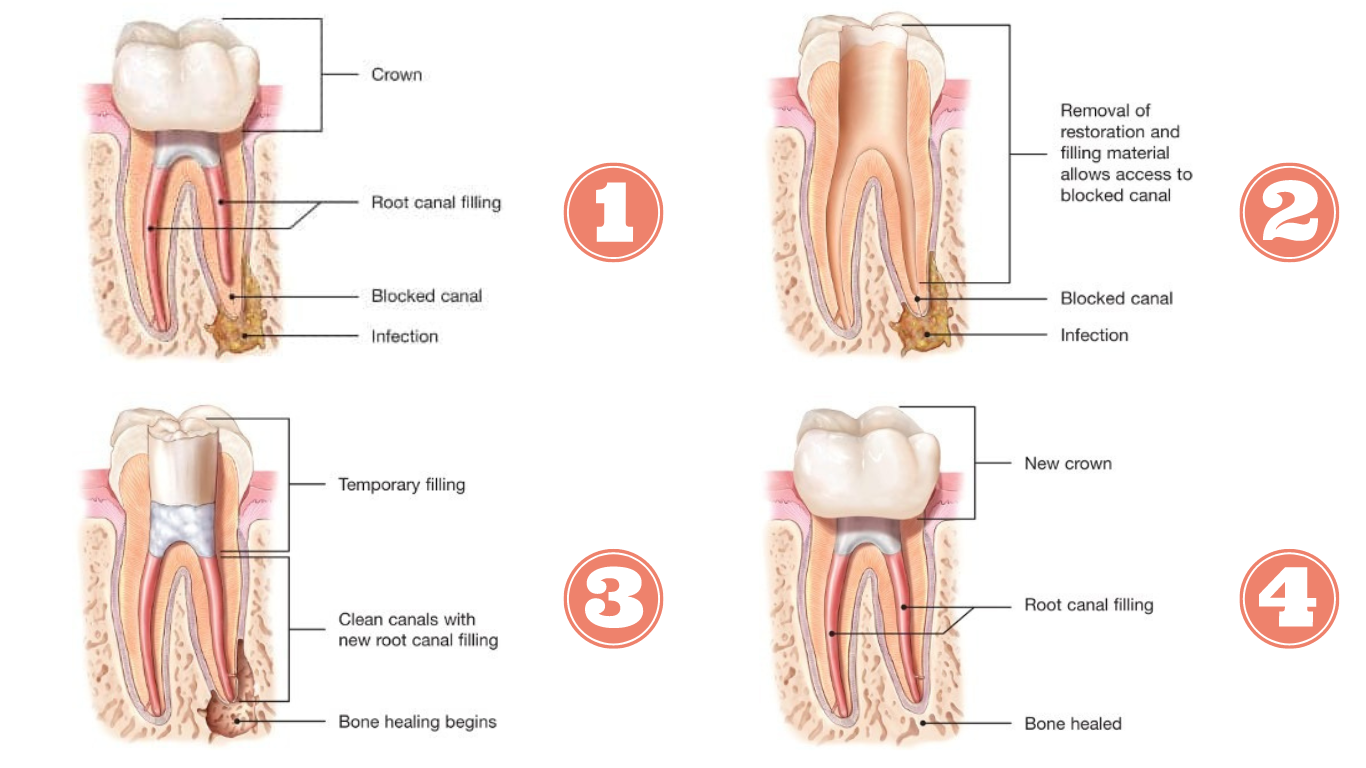Non-Surgical Endodontic Retreatment
What Is Endodontic Retreatment?
Teeth that have undergone root canal therapy can have a lifespan similar to other natural teeth. But, in some cases, a treated tooth may still experience pain or fail to fully heal after treatment. In some cases, this pain may not appear until months or even years later. If this occurs, you may need to undergo a procedure referred to as “Endodontic Retreatment.”
Reasons For Endodontic Retreatment:
- Undetected Canals – The root systems in teeth can be very complex, and not all canals may be visible during the initial treatment.
- New Tooth Issues – A fracture or new decay could have arisen since the original treatment.
- Crown Concerns – The crown must be placed within a specified time frame to prevent saliva and bacteria from re-infecting the roots.
- Inadequately Cleaned Canals – Oddly shaped canals may not have been completely cleaned during the initial procedure.
The Process Of Endodontic Retreatment:
- Anesthesia will be administered to numb the tooth.
- The tooth will be re-opened to access the root canal filling material.
- The restorative material will be removed to reach the root canal.
- The canals will be cleaned, re-examined, and filled with a new material before being sealed.
- A temporary filling will be placed in the tooth.

Frequently Asked Questions About Root Canal Retreatment
No, root canal retreatment does not hurt. Just as with the initial root canal procedure, a local anesthetic will be used to numb the area and keep you comfortable during the procedure. You may experience minor discomfort after it wears off, but over-the-counter pain medication should provide relief.
Typically, discomfort can last and peak up to the fourth or fifth day, then start to taper off with each passing day after. The length and levels of discomfort differ from person to person, pending the condition of the tooth. As a rule of thumb, when you wait until you are in pain you will experience discomfort for a few days after the treatment.
No, root canal retreatment gives you a chance to save the natural tooth. It reduces your chance of infection and helps to maintain your oral health.
For the most part, yes. Retreatment is going back into the tooth to remove any remaining infection. This procedure uses a surgical microscope to re-clean, re-fill, and re-seal the canals.
Recovery time may vary from person to person, but most patients are back to their normal life within a couple of days following the treatment. It is not uncommon for the tooth to have sensitivity up to a week after the procedure. Over-the-counter pain medication can provide relief.


